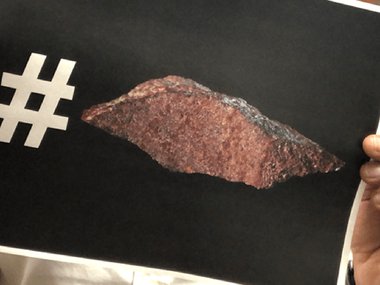Tattoos are a pretty common form of self adornment. This ritual has been practiced since ancient times to display hierarchy, lineage, and self-expression. As technology has progressed, the styles and types of tattoos have become more diverse and complex, but can tattoos be more than art on our skin? Can tattoos help fight disease?
Currently scientists are working on a medical tattoo that could make a pretty big impact down the road. This breakthrough in tatting-technology involves the worlds of both medicine and nanoscience. The concept here is fascinating and one that could revolutionize how we approach autoimmune diseases like multiple sclerosis, celiac disease and leukemia, among others.
For this procedure, scientists took a creative new look at what would be involved in making a special type of disease-fighting ink. By taking the medication and fusing it with a carbon-cluster nanoparticle, scientists were able to design a special medical ink. This ink would be administered to the skin much like a tattoo, or in this case, a temporary tattoo. As the skin absorbs the ink, it is slowly released into the body. This means the dose is administered bit by bit over time, as opposed to in and out of the blood stream like standard injected medication.
Once this special ink is in the system, it does something very powerful. The medicine and nanoparticle combination impact the T-cells in the body. These are considered to be the look-outs for our body’s immune response. When they are alerted to foreign components, they wave a flag for the immune system to get active and eradicate the intruders. Now, usually, this is a good thing and the exact purpose of the T-cell to immune system relationship. However, in cases of autoimmune diseases, this can lead to damage when the immune system is actively killing off healthy cells in the body.
The goal of this new procedure is to prevent the immune system from being active when it need not be. Shutting down the T-cells’ ability to activate the immune system would prevent the killing off of healthy cells while infected ones are addressed by the doctors. Once the full dosage is used up, the tattoo will have disappeared from the skin as well. This temporary medical tattoo is still in trial stages but shows great promise in dealing with diseases that impact such a large portion of the population.
Currently, there are 45 million people in the United States that have at least one tattoo. Oddly enough there are about 50 million people in the United States that are affected by autoimmune diseases. These two numbers have nothing to do with one another, but it is interesting to consider how popular tattoos are and how they could potentially address some of the future methods in treating autoimmune diseases. Regardless, more testing is needed before this becomes standard practice, but maybe one day, the medical field and the tattoo worlds could overlap. For now, this is a temporary tattoo, but it’s proving to be effective and seems to carry less regret than that sweet tribal tat you picked up in college on a whim.
Also, if you need some science-based tattoo ideas, this list should get your mind rolling!


